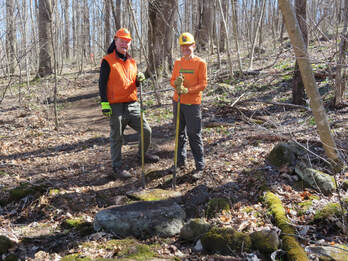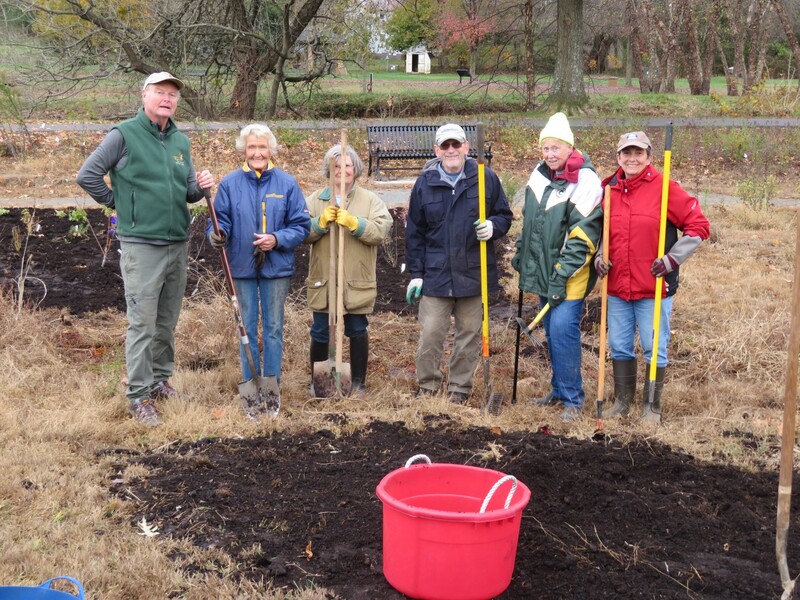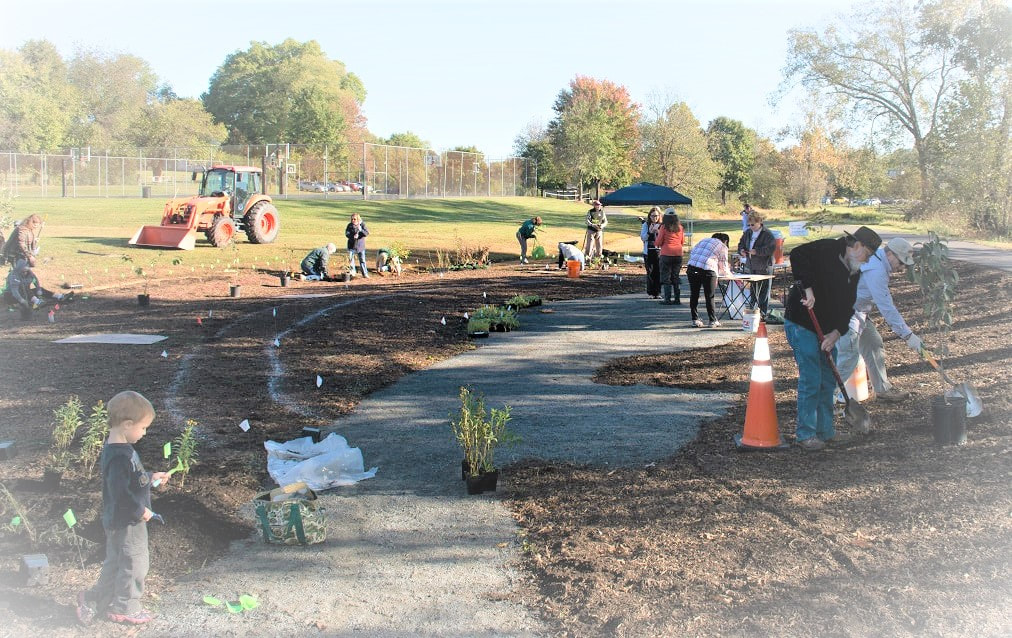 Barry Buschow was born in North Carolina where his father was stationed at the Camp Lejeune Marine Corps Base. His family moved to Falls Church, Virginia when it was a small hamlet – not the urban center that it is today. He loved to play in the woods and streams near his home, often bringing salamanders, frogs, and turtles back where he created habitats for them in large tubs. He would always take them back to their natural habitat at the end of the season. He once found a 28-½ inch long bullfrog and that landed him on the front page of the local newspaper North Virginia Sun, which is no longer published. Barry’s family could not afford to send him to college so he attended a computer school, and then worked the graveyard shift at Goddard Space Center while attending the North Virginia Community College during the day. “I can remember never feeling like I got enough sleep,” Barry recalled. Exhibiting his tenacity and commitment to the goal of getting a college degree, he was able to save enough money to transfer to Virginia Tech in his sophomore year. Barry was initially a biology major but was convinced to change to business as a more “job friendly” major. He played on VA Tech’s baseball team and remains active in its Alumni Chapter to this day. After graduating he worked for a contract engineering company for 31 years. When his wife, an artist, found the home of their dreams in Culpeper, they both retired and moved to an established neighborhood of 20 homes with large lots and many mature trees throughout the community. When and how did you become interested in nature and the natural world? As noted earlier, Barry was always exploring the outdoors. His second love was baseball. “When I was nine years old I was active in Little League baseball. I would carry my mitt with me everywhere” Barry said. He would constantly throw things – balls, rocks, anything that he could hold in his hand - to improve his throwing skills. “One day I was walking around in my backyard and I saw a robin on a fence. I picked up a piece of chuck mulch and threw it at him – and it killed the bird.” Barry said that memory still disturbs him and is part of the reason he has such a strong motivation to take care of nature. Shortly after moving to their current home, Barry saw an ad for the ORMN Basic Training Class and immediately applied. He completed his Master Naturalist training in Class 8 and has been active in the chapter ever since. “The Basic Training Class taught me how much I don’t know,” Barry said with a smile, “but it also taught me how to find the answers.” Describe what you do on your property to support a healthy ecosystem. Barry explained that the first three years on their property were spent in getting a better understanding of invasive plants and effective ways to remove them. Many of their invasives had to be cleared by hand which was very time-consuming. This included taking out 30 autumn olives and a number of Bradford pears. Last summer they established a ¼ acre pollinator garden which is a major source of nectar for his wife’s five beehives. They also had to install a bear fence to protect the hives. Barry is a big fan of bluebirds and maintains five bluebird boxes on his property as well as monitoring two trails for the chapter. Since bluebirds usually don’t use all the boxes each year, he has seen tree swallows and chickadees nest in the boxes as well. Last summer a large oak tree was downed by lightning. Barry had to remove the tree and stump and used the space to create a Milkweed Garden. What is the most amazing thing you have experienced in nature? Barry immediately said that 28-½ inch bullfrog took the prize – then continued by saying “Now every day is amazing. This morning when I was monitoring my bluebird houses, I saw that a bluebird laid eggs in a moss chickadee nest. The bluebird did not wait to build a straw nest over it.” He particularly enjoys the different birds that visit his property, including owls and hummingbirds. He noted that the hummers came a little early this year and he had to find and fill his feeders right away. What ORMN approved projects have you enjoy the most? Barry is active in supporting a number of bluebird trails, including the ones at Hoover Ridge County Park in Madison and the Culpeper Sports Complex. He is also a monitor for a portion of the Appalachian Trail in Shenandoah National Park as well as a member of the ORMN South River Falls Trail monitoring team. Barry also volunteers for Friends of the Rappahannock projects, including riparian buffer restoration and stream monitoring. “There are so many interesting opportunities among ORMN-approved projects and just not enough time to volunteer for all of them,” he said with regret. As the President of ORMN, what would you say were its greatest achievements in your first year as president – and what are the challenges ahead? “I have been so proud at how many members have risen to the challenges of continuing our activities during the COVID-19 pandemic,” he said. “Members have been creative, patient, resourceful, committed and persistent in carrying on – be it the administrative duties, our Basic Training Class, or finding new ways to support our chapter’s projects.” He made specific note of the scholarships that were established by the ORMN Board in his first year of office: one for individuals to participate in the Basic Training; a second for members to attend VMN seminars and annual meetings; and a potential third scholarship for high school students who are interested in conservation. He also praised the efforts of Dera Cooper, Alex Bueno and Carolyn Smith in transitioning members to the new VMN data system. Of ORMN’s 95 members, 56 members - almost 60% - have signed on so far. Barry feels the main challenge of the chapter going forward is keeping members involved in chapter activities, particularly members from the some of the earlier classes. “We need to listen to the interests and needs of all our members – what they are interested in, want to learn and where they want to volunteer,” he explained. Barry continues to support the chapter’s communication and continuing education efforts as some of the most viable ways to reach out to all members. “Every single person who becomes a certified Master Naturalist contributes to the relevance of our chapter. We need to get them all involved in promoting good conservation practices on their own property and throughout Virginia.” Interviewed by Charlene Uhl, April 2021 |
AuthorWrite something about yourself. No need to be fancy, just an overview. Archives
December 2023
Categories
All
|


 RSS Feed
RSS Feed